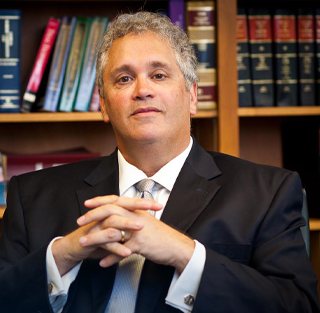Table of Contents
- Do Public and Private Swimming Pool Owners Have Different Liability?
- Public Swimming Pool Liability in Georgia
- Georgia’s Public Swimming Pool Category Classes
- Public Swimming Pool Safety Requirements
- Private Swimming Pool Safety Requirements
- Get Legal Counsel From Georgia Swimming Pool Accident Attorneys
Do Public vs Private Swimming Pool Owners Have Different Liabilities?
In Georgia, there is a duty of care that the owner of any land, public or private, must provide to invitees.
Every swimming pool owner in Georgia is required to meet certain minimum safety requirements that include:
- Providing pool barriers, such as a fence or a wall, to prevent unauthorized entry.
- Equipping the pool with lifesaving equipment, including a shepherd’s hook, and a Coast Guard-approved life ring attached to a rope.
- Installing underwater lighting as well as surface area lighting.
- Creating permanent, easily-readable depth markers to outline the depth of the water within 3 inches of normal water level when the pool is operating usually.
Some of these measures are related to taking special precautions under the attractive nuisance doctrine, and, while all swimming pool owners must abide by these requirements, there are some differences in the liability and duty of care owed by owners of public and private swimming pools.
Below, we highlight the legal definitions of public vs. private swimming pools in the State of Georgia, the mandatory safety features required, and the legal liabilities for each.
Public Swimming Pool Liability in Georgia
Legal Definition of “Public” Pools in Georgia
According to Georgia Rules and Regulations 511-3-5, a public swimming pool is defined as any shareable structure, chamber, or tank of an artificial body of water used by the general public for the purposes of swimming, diving, wading, recreation, or therapy, together with buildings, equipment, and accessories used in connection with the body of water, regardless of whether a fee is charged for its use.
“Public Swimming Pool” also applies to any pool permitting use and access in exchange for payment of a daily fee at any:
- Municipal
- School
- Hotel or Motel
Georgia also considers pool and spa facilities to be public if they are operated by or serve:
- Camps
- Churches
- Day Care Centers
- Group Home Facilities
- Parks & State Agencies
- Condominiums
- Mobile Home Parks
- Recreational Vehicle Parks
- Health Clubs
- Special Purpose Pools
- Recreational Water Parks
Georgia’s Public Swimming Pool Category Classes
Public swimming pools in the State of Georgia are divided into the following legal classifications:
- Class “A” – swimming pools intended for use for accredited competitive swimming events.
- Class “B” – swimming pools intended for general public recreational use.
- Class “C” – swimming pools operated solely for and in conjunction with lodging and housing such as hotels, motels, campgrounds, and multi-residential housing.
- Class “D” – special purpose swimming pools.
- Class “E” – swimming pools or spas used for instruction, play, or therapy, and having a water temperature above 90°F.
Public Swimming Pool Safety Requirements
Public swimming pool owners can be held liable when they fail to provide lifesaving tools such as lifesavers, fix pool equipment, or if the pool lacks adequate supervision such as lifeguards. They would also need to warn of any dangers that are not obvious to the public.
Among the required safety features for swimming pools in Georgia are:
- Handholds
- Rope and Float Lines
- Depth Markers
- Time Clock
- Water
- Regulated Temperature
- Water Agitation System
- Emergency Shutoff Switch
- Lifeguards
- Lifesaving Equipment
- Barriers
- Warning Signs
- Avoidance of Obstructions
Failure to meet these requirements could be used by a plaintiff to show a breach of duty on the part of the pool owner in a premises liability suit.
Private Swimming Pool Liability in Georgia
Legal Definition of “Private” Pools in Georgia
The owner of a private swimming pool has a duty to warn guests or pool users of any potential dangers that are not obvious. Private pool owners in Georgia can be held liable for not warning about these hazards if a pool invitee is injured. However, the duty of care owed by a private pool owner is less substantial than that of a public pool owner.
Some common liability threats for private pool owners include injuries that occur to children who are not properly supervised while using the private pool or if precautions outlined under the attractive nuisance doctrine have not been taken, such as building pool barriers to keep children out of the pool without supervision.
Private Swimming Pool Safety Requirements
In Georgia, private pool owners are required to create a gate/fence barrier around their pools to ensure the safety of children and invitees.
Pool fences in Georgia must be a minimum of 4 feet in height, and if the pool is not taller than that minimum, a gate latch must be installed within 6 inches from the top of the fence.
Georgia safety standards require that pool gates be self-closing and latching, with latches installed no lower than 4 feet above ground.
Get Legal Counsel From Georgia Swimming Pool Accident Attorneys
The foregoing answers are not legal advice and are merely a general overview. You are advised to consult a lawyer to address your specific situation. For more information or to inquire about a free consultation, contact Stephen D. Apolinsky, an experienced Atlanta Swimming Pool Accidents Attorney, at Apolinsky & Associates at (404) 377-9191 or email him at steve@aa-legal.com.



